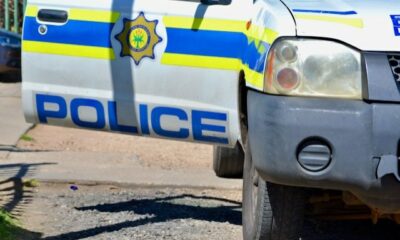Best of Johannesburg
South Africa’s Witness Protection Programme 2025: Who Qualifies and Why It Matters

A quieter shield in South Africa’s fight against crime
In South Africa, many court cases hinge on the courage of individuals willing to speak up. Sometimes that bravery comes at a heavy price. The Office for Witness Protection (OWP), operating under the umbrella of the National Prosecuting Authority (NPA) and the Department of Justice and Constitutional Development, offers a critical but often overlooked safety net. Its job is to quietly protect those whose lives, or the lives of their family members, may be at risk because they have agreed to testify in serious criminal trials.
The legal foundation for this is the Witness Protection Act 112 of 1998, which came into effect in 2000, marking the birth of a programme designed to allow witnesses to speak without fear and to keep our justice system functioning.
Who can apply for protection
If you are a witness or expect to give testimony in criminal proceedings, a commission of inquiry, a tribunal, or an inquest, and you believe your safety or the safety of your family could be threatened as a result, you may qualify. That includes immediate family and, where relevant, extended family too.
What makes a person eligible is more than just a feeling of fear. The OWP evaluates:
· Whether there is a credible threat to your safety or that of your family
· If your testimony is important to the prosecution’s case
· Whether there are less drastic methods to protect you
· Your personal background, including any criminal history, and your capacity to live under the rules of the protection programme
It is a voluntary programme. You, or someone acting on your behalf, must report the threat and request protection, ideally to the investigating officer, a police official, a public prosecutor, or directly to OWP.
From urgent help to long-term safety
When a threat is deemed real and immediate, the OWP can intervene at once. A witness (or related person) may be placed under temporary protection for up to 14 days while their application is properly assessed. After a full evaluation, if accepted, the individual signs a protection agreement and can receive long-term protection.
Assistance can include relocation, new identity documents, safe housing, living expenses, and other support as needed. These measures give people a chance to rebuild under new identities, free from the danger posed by those they testified against.
Why this programme matters
In cases involving organised crime, corruption, or serious violent offences, witnesses are often the only people able to connect perpetrators to their crimes. Without a robust protection programme, many may withdraw their cooperation or never come forward at all. That undermines the ability of prosecutors to pursue justice.
In 2025, the OWP remains one of the cornerstones of South Africa’s criminal justice system. Its existence represents a firm state commitment to human rights and the rule of law. For ordinary citizens, this means that cooperating with police or prosecutors can come with real protection, not just promises.
The costs and human side of protection
Protection comes at a price. Witnesses must often leave behind their former lives. Families may relocate, children may have to change schools, and for some, the emotional toll can be heavy. Research in South Africa has shown that children in protected families sometimes struggle with isolation, identity issues, and disrupted schooling.
These human challenges are part of the hidden cost of protecting justice. The OWP encourages supportive services to help families acclimatise to new identities and avoid secondary trauma. Without these efforts, the long-term success of protection can be undermined.
Could more be done? A call for awareness
While the WPP plays a vital role, experts warn that there are still gaps. A recent 2025 study noted that strict eligibility criteria and limited public awareness mean many potential whistle-blowers or witnesses stay silent. Calls are building for increased funding, broader support for families, clear after-care programmes and simplified procedures to make protection more accessible.
For South Africans, this raises an important question: how many crimes go unreported because people do not believe protection will actually follow?
Why you should care
Whether you’re a community member, potential witness, or simply someone interested in justice, the WPP matters. It’s not flashy. It doesn’t make headlines. But it is quietly doing the work that keeps perpetrators behind bars and communities safer. In a society still wrestling with crime and unrest, that shield behind the scenes deserves more recognition and perhaps more resources. As we move through 2025, let’s remember that for justice to prevail, sometimes the bravest thing is being willing to speak and having someone ready to listen.
Also read: What South Africans Can Learn from 2025’s Misreported Stories
Follow Joburg ETC on Facebook, Twitter, TikT
For more News in Johannesburg, visit joburgetc.com
Featured Image: AMU Edge


























